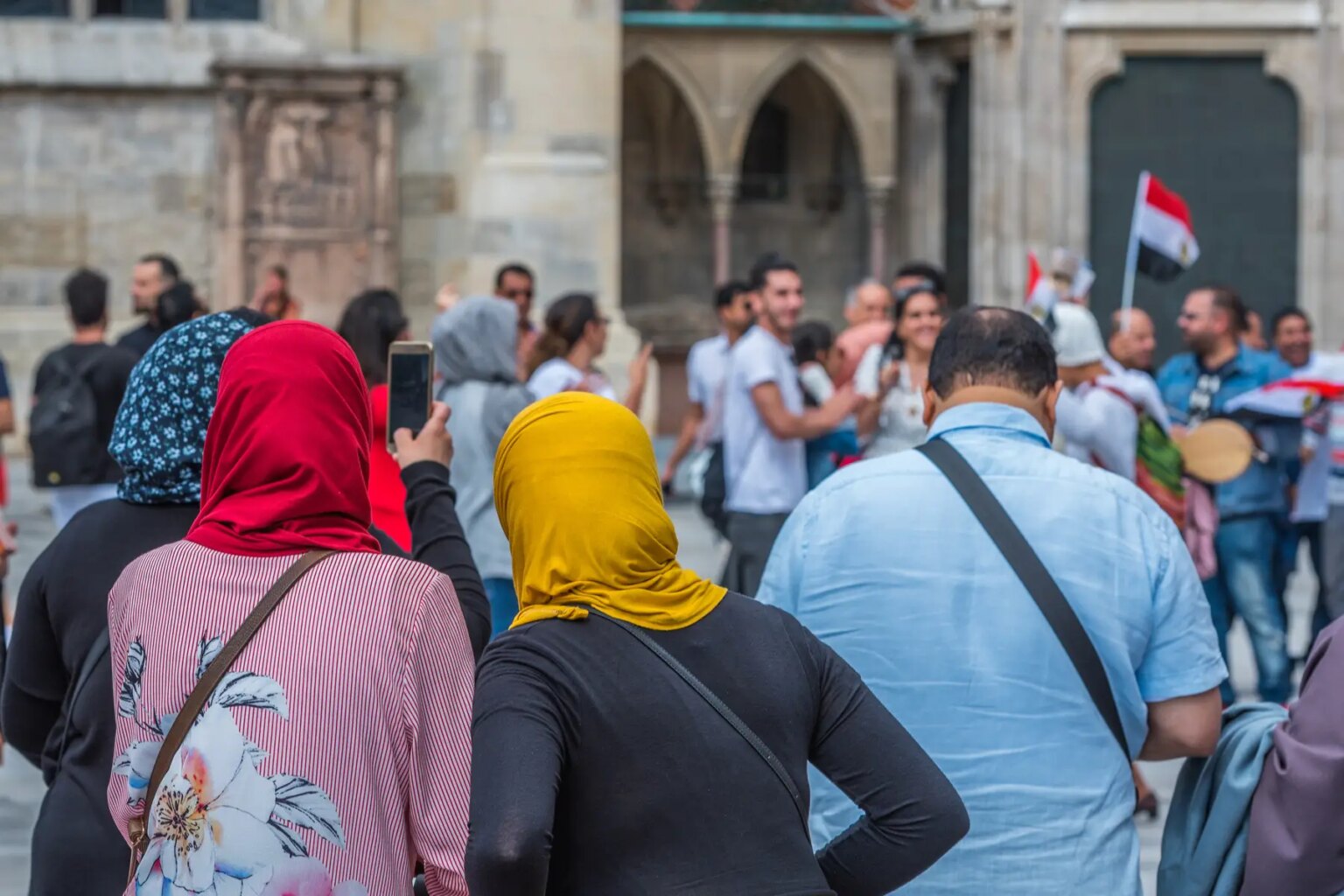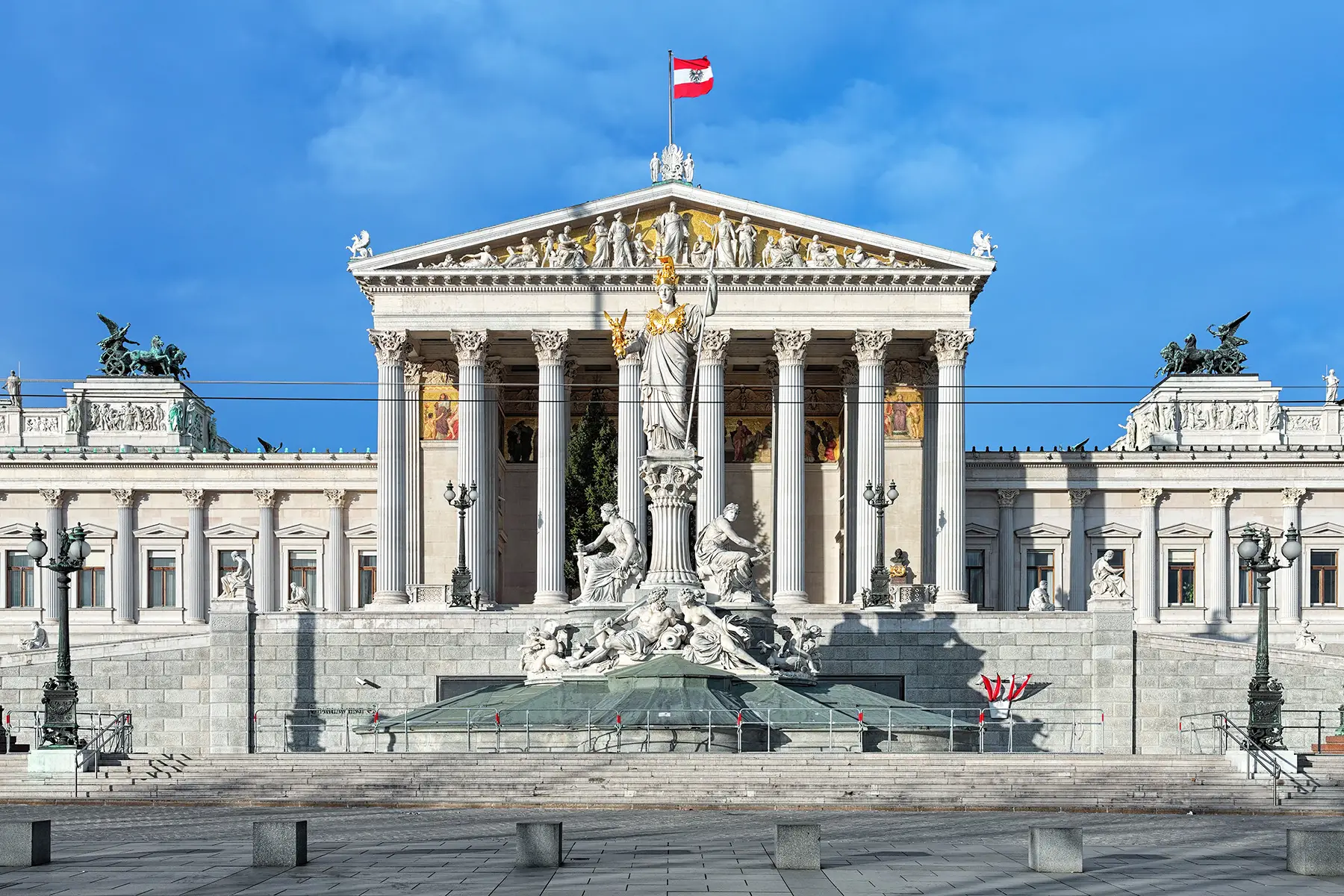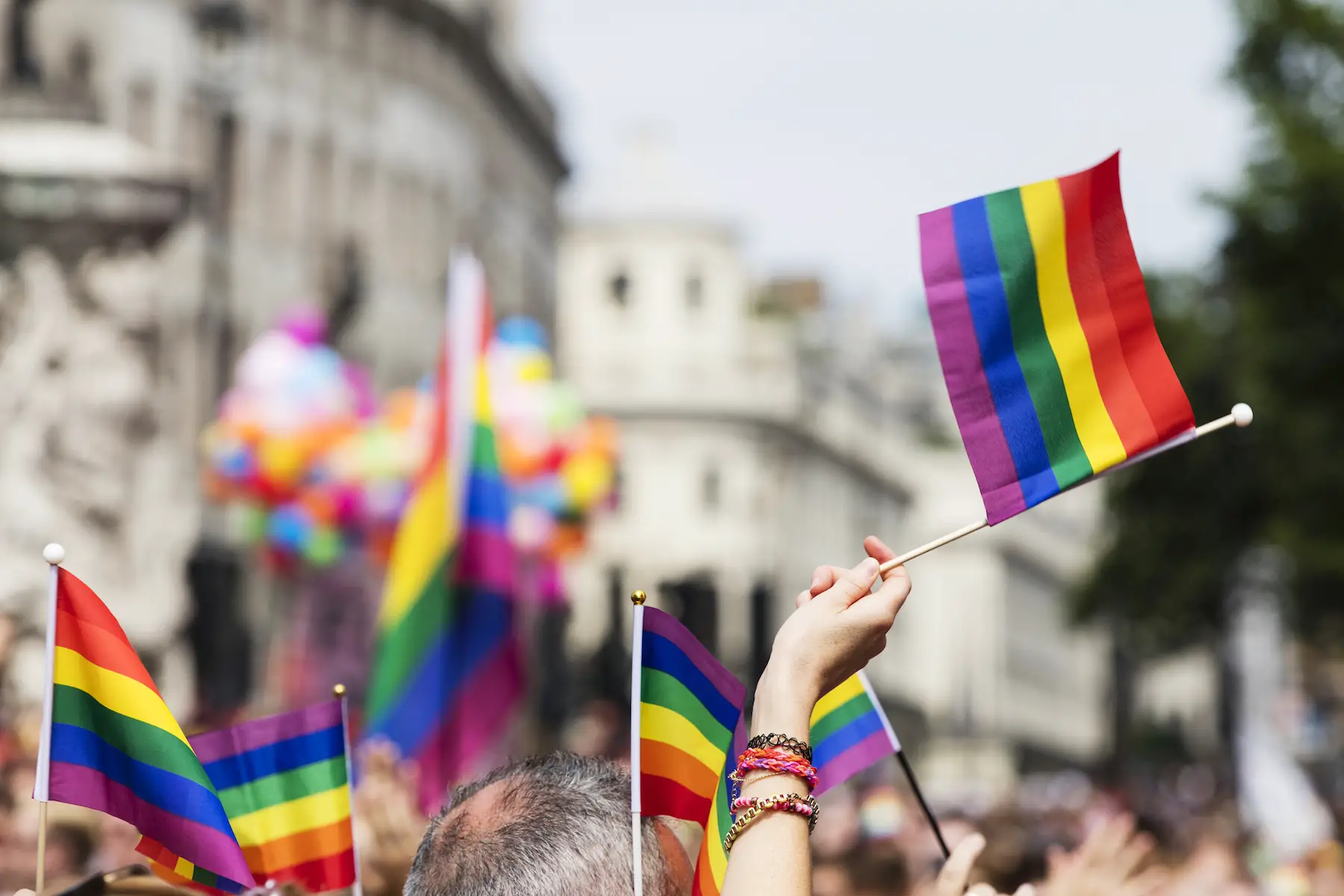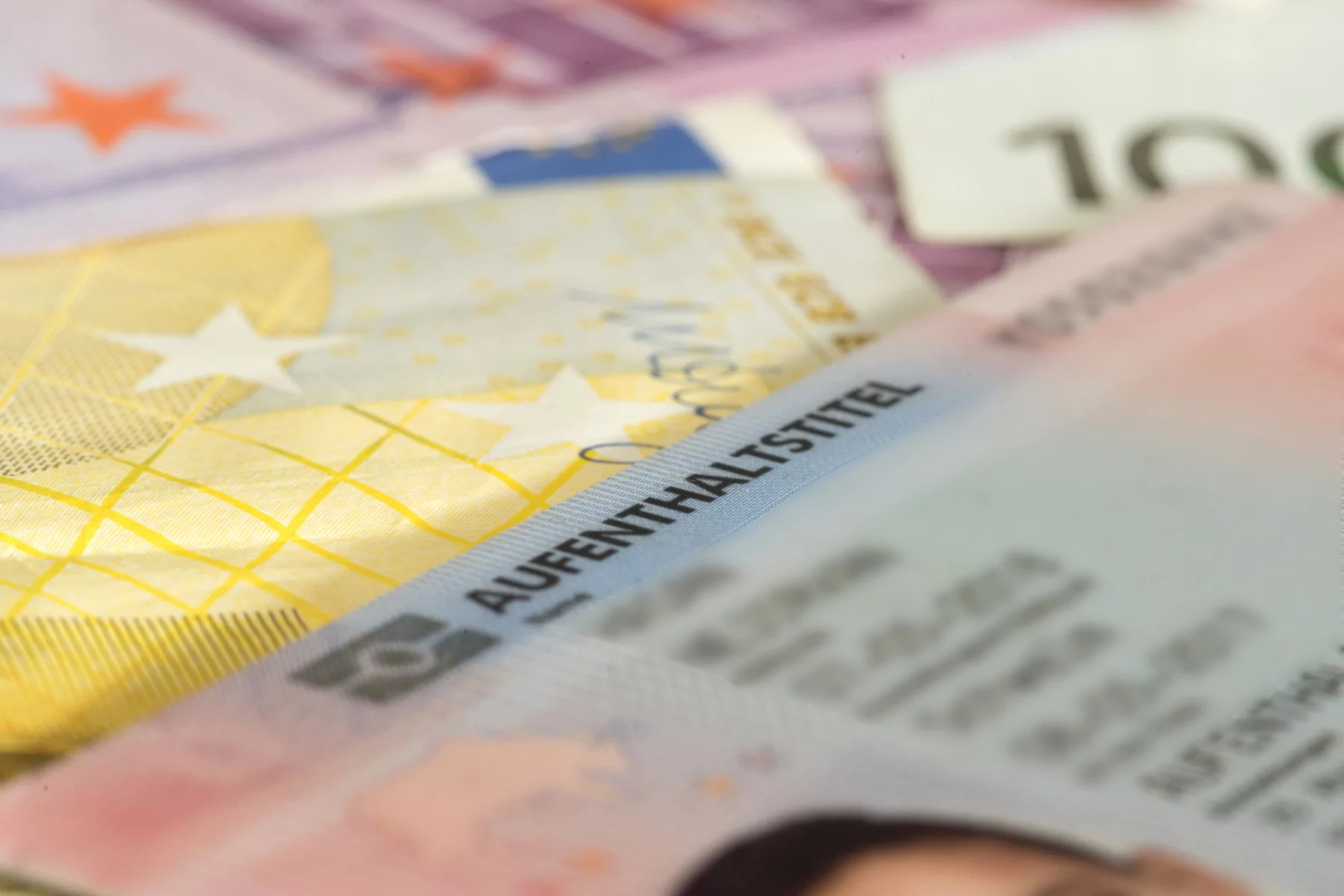It might be something that you take for granted where you currently live. But when considering relocating to a new country, the civil and human rights principles that the nation is built upon should be top of your research list. But what is the difference between the two? Well, in simple terms, you acquire human rights just by being alive. They should, therefore, be universal. Civil rights, on the other hand, are rights that you gain when you become a legal member of a political state. Therefore, they vary greatly from country to country.
The government and political system in Austria clearly define the civil rights afforded to the country’s citizens. And to give you an overview, this comprehensive guide covers everything you need to know on the topic, including the following:
- An overview of human rights in Austria
- Civil rights in Austria
- Political rights in Austria
- Social and cultural rights in Austria
- Workers’ rights in Austria
- Women’s rights in Austria
- LGBTQ+ rights in Austria
- Disability rights in Austria
- Anti-racism and anti-discrimination legislation in Austria
- Migrant and refugee rights in Austria
- What to do if your rights are abused or restricted in Austria
- Human rights organizations in Austria
Ground News
Get every side of the story with Ground News, the biggest source for breaking news around the world. This news aggregator lets you compare reporting on the same stories. Use data-driven media bias ratings to uncover political leanings and get the full picture. Stay informed on stories that matter with Ground News.
An overview of human rights in Austria
The Universal Declaration of Human Rights (UDHR) sets out to protect a common standard of fundamental human rights. This milestone document – which has been translated into 500 different languages – was affirmed by the United Nations in 1948 as a charter for all people of the world. Austria has been a member of the United Nations since 1955. The country joined as its 70th member and upholds the principles of the UDHR. Furthermore, Austria is an engaged member of the UN and actively participates in the work of the organization.
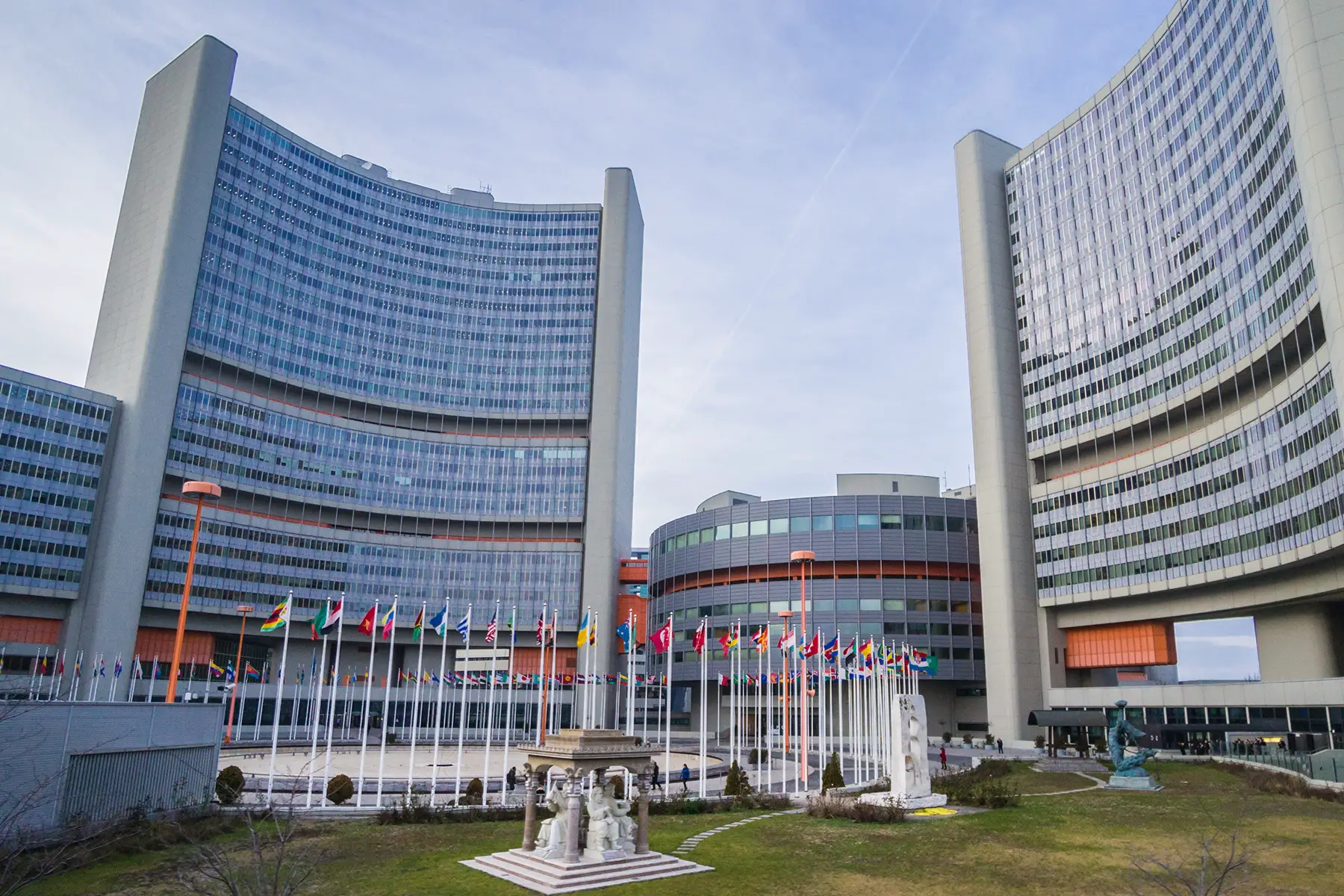
As a member of the European Union, the rights and freedoms of Austrians are protected. This includes the right to a reasonable standard of living, food, education, healthcare, freedom of movement, opinion, and religion. As well as prohibiting torture, Austria has also abolished the death penalty.
The European Court of Human Rights oversees the maintenance of the system in Austria. Therefore, an individual can appeal to the court if their rights have been violated and the court’s decisions are binding. Austria upholds the decisions of the court, and if there has been a violation, it will be rectified by the nation.
Along with the European Court of Human Rights, Austria complies with the European Social Charter, the European Convention for the Prevention of Torture and Inhuman or Degrading Treatment or Punishment, and the Framework Convention for the Protection of National Minorities. These are all vital agreements of the Council of Europe for upholding human rights.
Civil rights in Austria
A democratic and peaceful society, Austria ranks 15th out of 162 countries overall on the Human Freedom Index 2020. The Index details the state of human freedom around the world, taking into account personal, civil, and economic freedom.
Austria has a democratic system of government that chooses its leaders in multiparty elections. The country guarantees political rights and civil liberties for its citizens. The privacy of the dwelling is also explicitly protected under Austrian law.
In addition, Austrians have the right to a fair trial, enjoy the right to work, reasonable pay, and free choice of employment, as well as the right to form trade unions. Citizens also have the right to vote and the right to freedom of assembly and association. They also have the right to participate in cultural and social life.

Under Austrian law, a person cannot be detained for more than 48 hours without a trial. Furthermore, investigative detention must be complete before two years are up. In Austria, the right to free speech is subject to limitations. A noteworthy example is a prohibition to call the prophet Muhammad a pedophile. In 2018, the European Court of Human Rights upheld this stipulation.
Political rights in Austria
Every Austrian citizen that registers as 16 or above on election day may vote. Those who turn 18 on election day also have the right to be elected. If convicted of a criminal offense that exceeds one year’s imprisonment, that citizen will then lose their voting rights.
Social and cultural rights in Austria
The system of social security in Austria covers social pension, health, education, work accident insurance, and unemployment. It covers all those gainfully employed, and typically their dependents. Austria also provides universal schemes such as family allowance and tax credit for children, childcare allowance, and a long-term care system. In addition, there are public welfare benefits available from the federal, provincial, and municipal authorities for citizens not covered by the insurance system.

Islam is the largest minority religion in Austria. In January 2020, the government announced plans to institute a controversial surveillance program on Muslims in the country. They state the reason is to fight against so-called “political Islam.” However, the plan is drawing criticism from academics, rights groups, and lawmakers.
Workers’ rights in Austria
Austria’s labor laws and employment rights are clear and coherent. EU/EEA citizens are free to work in Austria and don’t need any permits for the first three months. However, if you are staying longer than 90 days, you must apply for a certificate of registration.
For those who are outside of the EU, however, Austria uses a points-based system to determine which category an applicant falls under. This includes divisions like skilled workers who can fill shortages as well as start-up founders, graduates of local higher education institutions, and self-employed key workers. All of these categories qualify for a Red-White-Red Card. This is what most foreigners apply for when working in Austria.
After five years of living in Austria, anyone can apply for a long-term residence certificate. There is no statutory national minimum wage, but the Federal Arbitration Board has set minimum rates at a sector level.
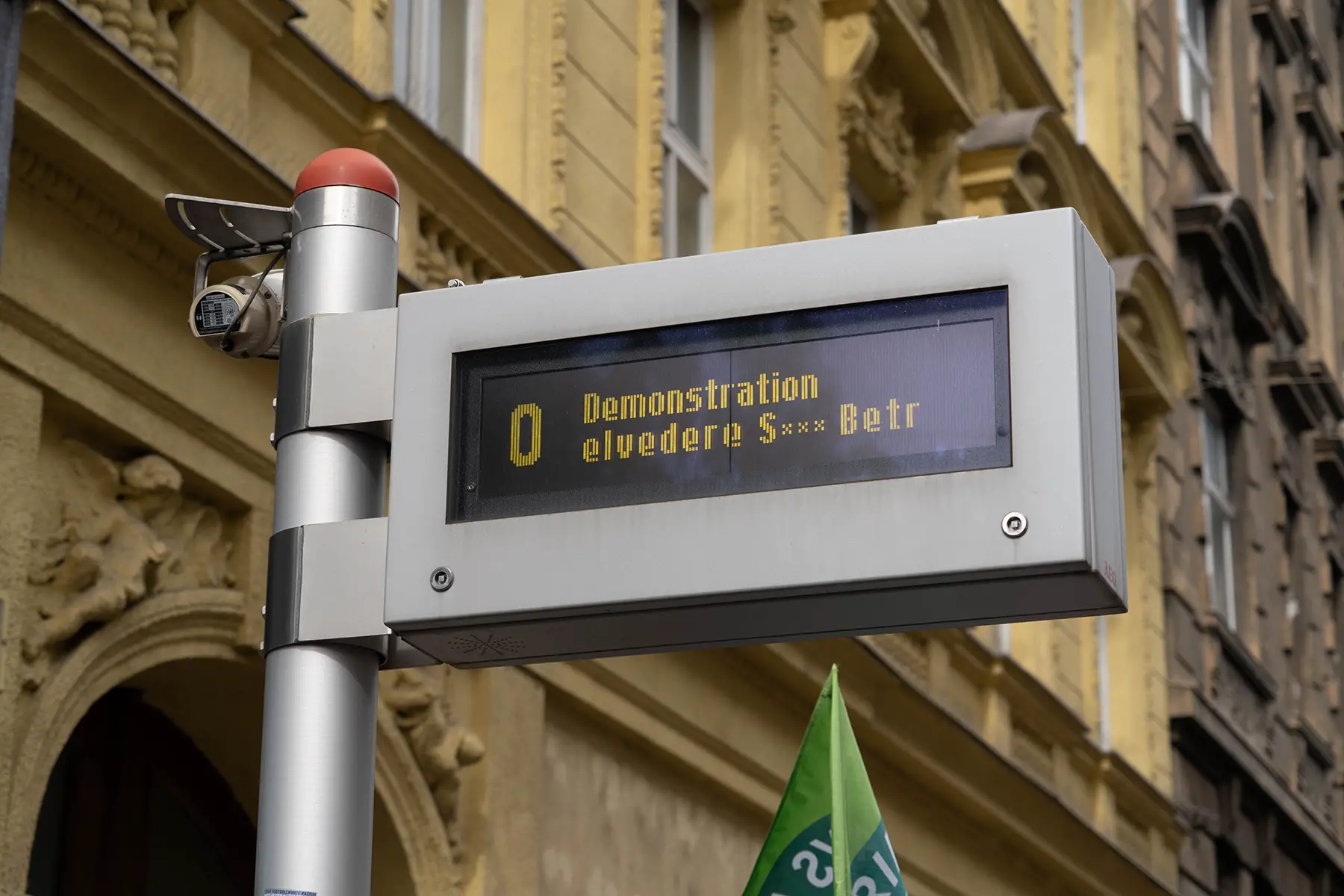
Austrian employees enjoy one of the best annual leave entitlements in the world. Employees enjoy 25 days’ paid holiday, which rises to 30 days after 25 years’ service. As an added bonus, workers get an additional 13 paid public holidays each year. Employers also have to pay their employees holiday pay before the holiday period starts.
Unlike other countries in Europe, Austria has no ingrained strike culture. Only workers have the right to initiate a strike; students, for instance, do not. Strike action is usually initiated by the trade union, but there is no formal system in place for calling a strike.
Women’s rights in Austria
Austrian Parliament passed the Protection against Violence Act in 2019. The law intends to improve the protection of survivors of sexual violence and add strength between police and the courts. Austria is also active in the Council of Europe Convention on preventing and combating violence against women and domestic violence. This is the first legally binding system that obliges states to act against gender-specific domestic violence.
Interestingly, although Austria is not an active member of the UN Commission on the Status of Women (CSW), it participates as an observer. Furthermore, the country provides financial aid to the UN Trust Fund to End Violence Against Women.
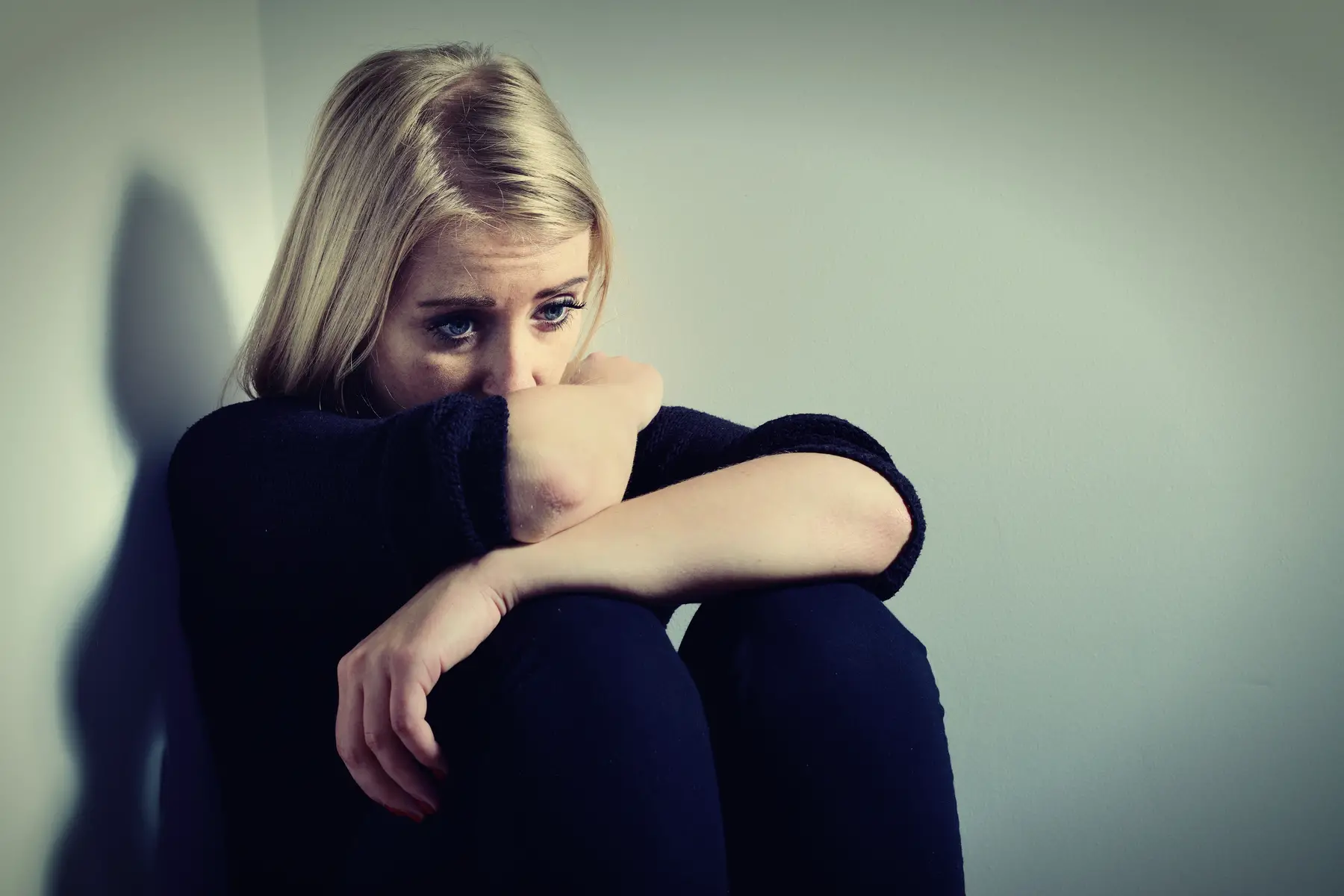
Austria also has a documented commitment to combatting female genital mutilation through the Austrian Development Cooperation (ADC). The ADC also provides support to South Eastern European projects to combat female trafficking. The nation also supports the Women, Gender, and Youth Unit of the African Union that fights against it.
In terms of reproductive rights for women in Austria, abortion is legal and available in Austrian hospitals during the first three months of pregnancy. However, unlike many EU countries, public insurance doesn’t cover the procedure without medical necessity; costs can run between €500 and €600. You can read more about this in our guide to women’s healthcare in Austria.
LGBTQ+ rights in Austria
Austria ranks 17th in the latest ILGA-Europe rating of 49 European countries in the world. The rankings are based on the laws and policies of each country regarding the LGBT+ community. The results track each country on factors such as equality, family issues, hate speech, legal gender recognition, freedom of expression, and asylum rights. This places Austria in a fairly central position on the scale for Europe; with Malta and Belgium leading the way and Türkiye and Azerbaijan lagging.
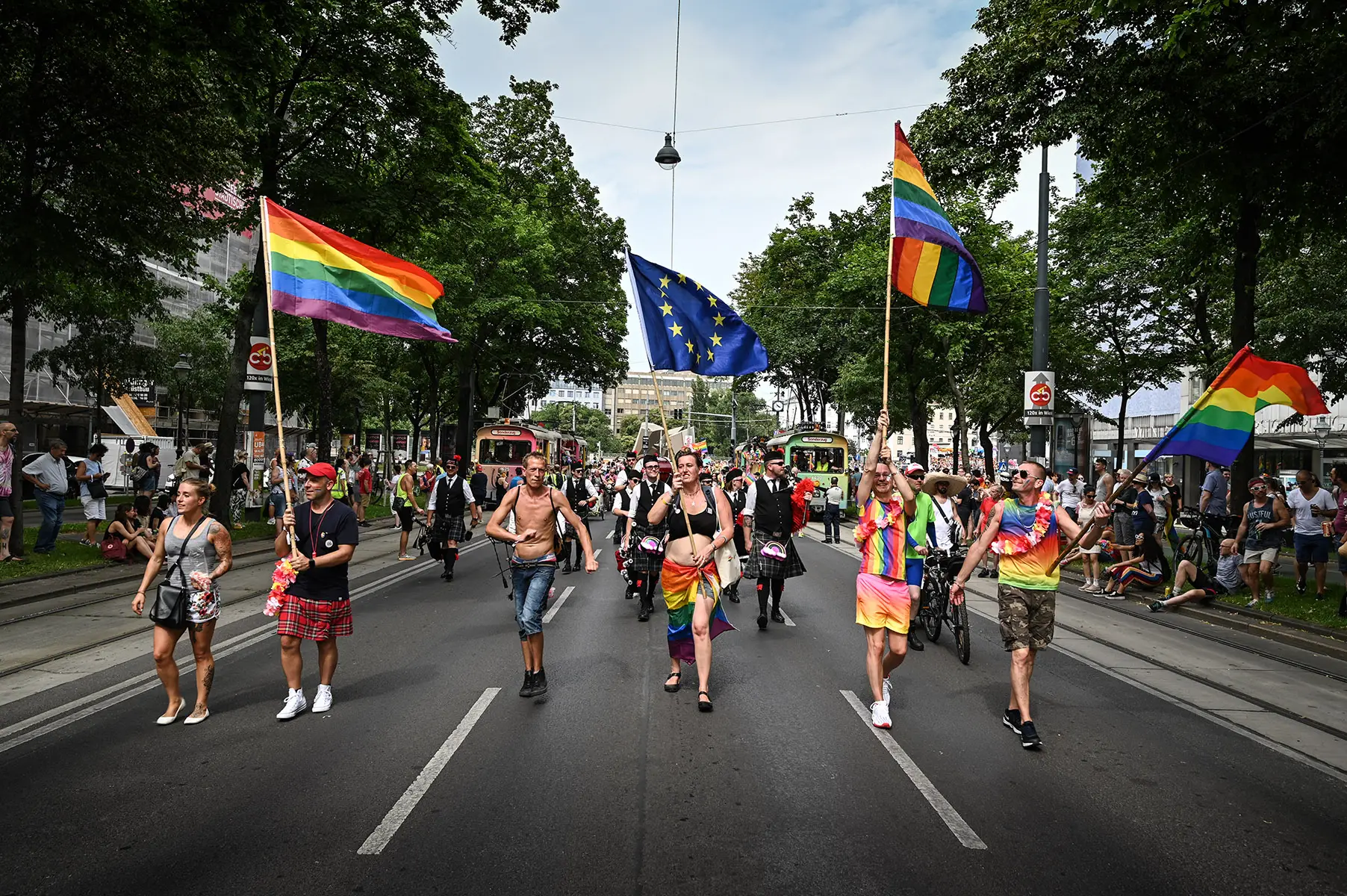
Fortunately, social acceptance is considered high in Austria. For instance, in 2019, Vienna hosted the EuroPride festival for the second time with great success and fanfare. The country’s larger cities are also home to many gay-friendly areas, while a general air of inclusion pervades the nightlife scene.
In 2015, the Constitutional Court of Austria legalized full joint adoption for same-sex couples. And as of January 2019, same-sex couples can marry in Austria. Following a 2018 Constitutional Court ruling, those who do not identify as either male or female can also register a third gender option.
Disability rights in Austria
The rights of disabled persons differ vastly around the world. In Austria, the situation for people with disabilities depends on the Bundesland (state) where they live. While the legal framework in Vienna and Styria is robust, for instance, many other states offer poorer options.
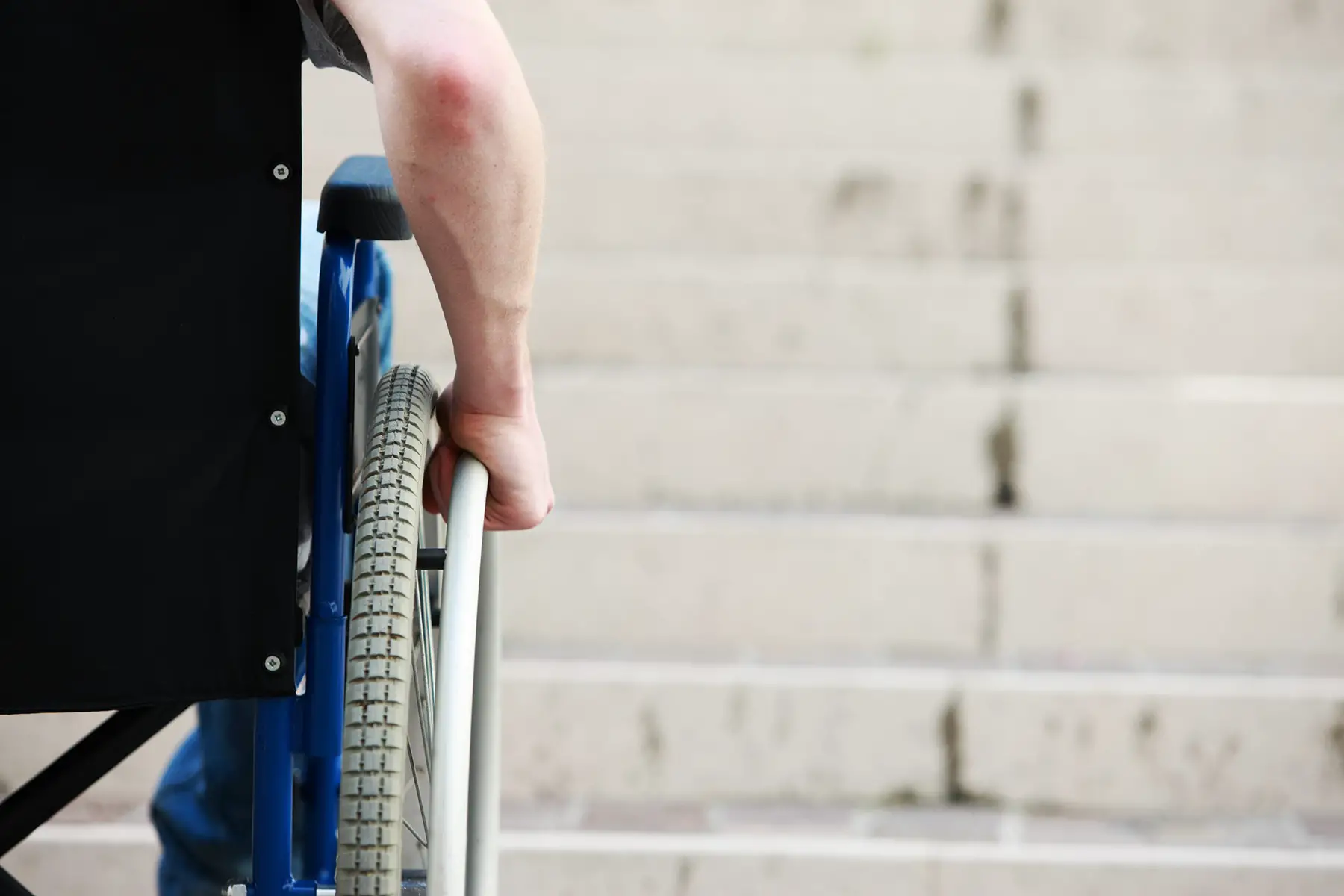
Support for disabled persons consists of both services as well as financial support. On one hand, Austria was among the first nations to sign the UN Convention on the Rights of Persons with Disabilities (CRPD) in 2008. On the other hand, however, the move to put strategies in place has been slow.
Anti-racism and anti-discrimination legislation in Austria
The principle of equal treatment is established in the Austrian Constitution. The country has adopted anti-discrimination legislation and is making ongoing improvements each year. Furthermore, criminal protection against hate crimes has strengthened over the past decade. Austria conforms to the 1965 UN Convention on the Elimination of All Forms of Racial Discrimination. In essence, this demands that states take concrete measures to combat discrimination based on color or ethnic origin.
The European Commission against Racism and Intolerance (ECRI) lauded positive measures taken in its sixth report on Austria, specifically citing the country’s efforts to better detect online hate and support to victims of cyber mobbing. ECRI also noted Austria’s efforts to tackle racism towards Romani – or Roma – people with its 2017 Roma Strategy.
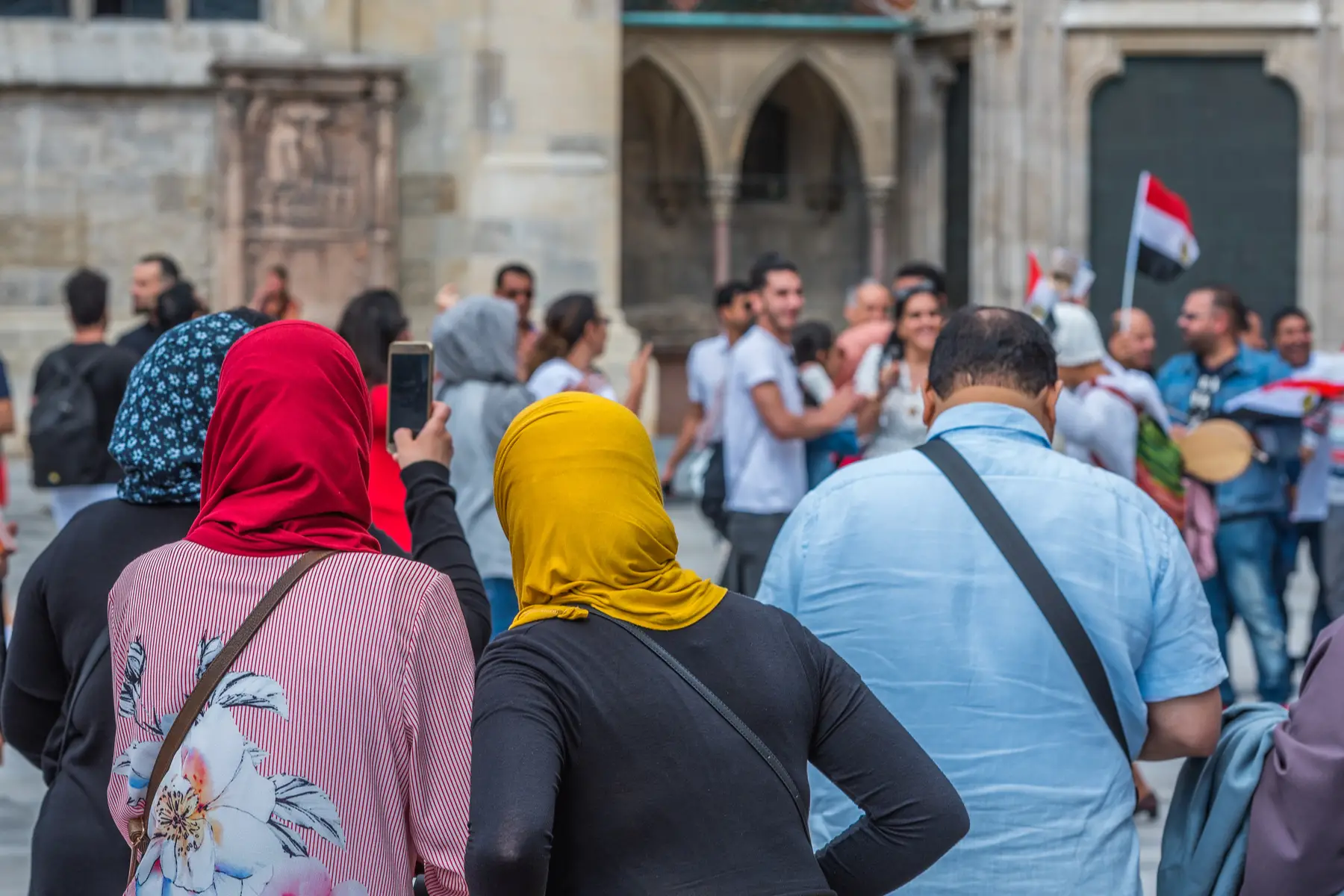
Austria’s Integration Act also came into force in 2017, providing resources to integrate newcomers into the nation and thus assist with integration into the labor market. Austria has also implemented non-legislative measures in the field of education, training, and awareness.
Despite these initiatives, instances of racism, much like in the rest of the EU, are still widespread throughout Austria. In fact, the ECRI states that there are “high levels” of Islamophobia in Austria. The Council also noted that political speech is increasingly targeting Muslims and refugees. The report mentions ethnic profiling by the police against Black and Muslim persons in particular. It also cited an amendment to the School Education Act that bans pupils under 10 from wearing headscarves.
The study Being Black in the EU surveyed 6,000 people in 12 EU nations, including Austria, in 2016. A quarter of all those surveyed felt racially discriminated against when looking for work. In this regard, rates in Austria, Italy, and Luxembourg, were the highest.
Migrant and refugee rights in Austria
In Austria, asylum seekers have the right to basic care. In ECRI’s report mentioned above, the council notes a reverse in the positive trend in Austria for implementing comprehensive integration policies. This was based on restrictions to integration measures, such as family reunification and naturalization. In addition, the recent Law on the Federal Agency for Care and Support in 2019 raised concerns about the provision of free legal aid to asylum seekers.

Austria continues to deport rejected asylum seekers to Afghanistan despite the uncertain security situation in the country. As a result, the number of asylum applications also continues to decline. In May 2019, Parliament passed the Fundamental Law on Social Assistance. This reduced social benefits for people with subsidiary protection status to the level of basic care provided for asylum seekers. Then in June, Austria passed a law that replaced independent civil society counseling with a governmental agency, raising concerns of fairness in the asylum procedure.
What to do if your rights are abused or restricted in Austria
There are several Austrian entities that you can contact to lodge complaints or appeals, as follows:
- The Austrian Ombudsman
- Tyrol Service Centre for Equal Treatment & Anti-Discrimination
- Equality Commissioner for Equality, Non-discrimination, and Advancement of Women of Salzburg
- Working Group on Equal Opportunities
- Federal Equal Treatment Commission
- Anti-Discrimination Agency
If you need to climb higher up the chain, however, there is the European Court of Human Rights (ECHR), which is based in Strasbourg, France. This international court of the Council of Europe interprets the European Convention on Human Rights. It is broadly accepted to be one of the most effective international human rights courts in the world. Moreover, either an individual or a group can lodge an application. As a last resort, you can contact the United Nations Human Rights Office of the High Commissioner.
Human rights organizations in Austria
There are several main human rights organizations in Austria that provide support and advice for citizens in the country. The Centre for Civil and Political Rights (CCPR-Centre) is an independent non-governmental body that works to promote the participation of NGOs in the work of the Human Rights Committee. Meanwhile, the Human Rights Association Austria – also known as Verein Menschenrechte Österreich – offers advice, legal counseling services, and aid with the voluntary return to a citizen’s home country.
